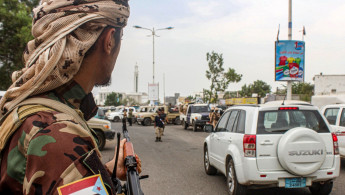Suspected AQAP gunmen kill 5 south Yemen separatists
The five members of the Security Belt separatist force, which is dominated by the Southern Transitional Council (STC), were killed at dawn on the outskirts of Lawdar city, the official told AFP.
"It was gunmen believed to be from Al-Qaeda who launched the attack and managed to escape," he said, speaking on condition of anonymity.
A medic in Lawdar confirmed the death toll, while Al-Qaeda has yet to issue any statements on the attack.
Al-Qaeda in the Arabian Peninsula has thrived in the chaos of Yemen's civil war between an internationally recognised government that is supported by a Saudi-led coalition and the Iran-backed Houthi rebels.
The United States, which considers AQAP the terror group's most dangerous branch, has carried out a campaign of drone strikes against its leaders for the past two decades.
Read also: Yemen in Focus: Could US terror designation be used to leverage Houthis?
Monday's attack was the biggest in southern Yemen since August, when Al-Qaeda killed a dentist in Al-Bayda accused of guiding US drone strikes against its militants and later that month blew up the medical centre in which he worked.
Security Belt forces played a decisive role in fighting against Al-Qaeda and the Islamic State group, which were forced to withdraw from southern urban centres.
The separatist STC wants the south to secede from the rest of the country, even while it is allied with the central government in a fight against their common foe, the Houthis, in the civil war.
The government and rebels have been locked in a five-year-old war that has killed tens of thousands - triggering what the UN terms the world's worst humanitarian crisis.
Agencies contributed to this report.
Follow us on Facebook, Twitter and Instagram to stay connected





 Follow the Middle East's top stories in English at The New Arab on Google News
Follow the Middle East's top stories in English at The New Arab on Google News


